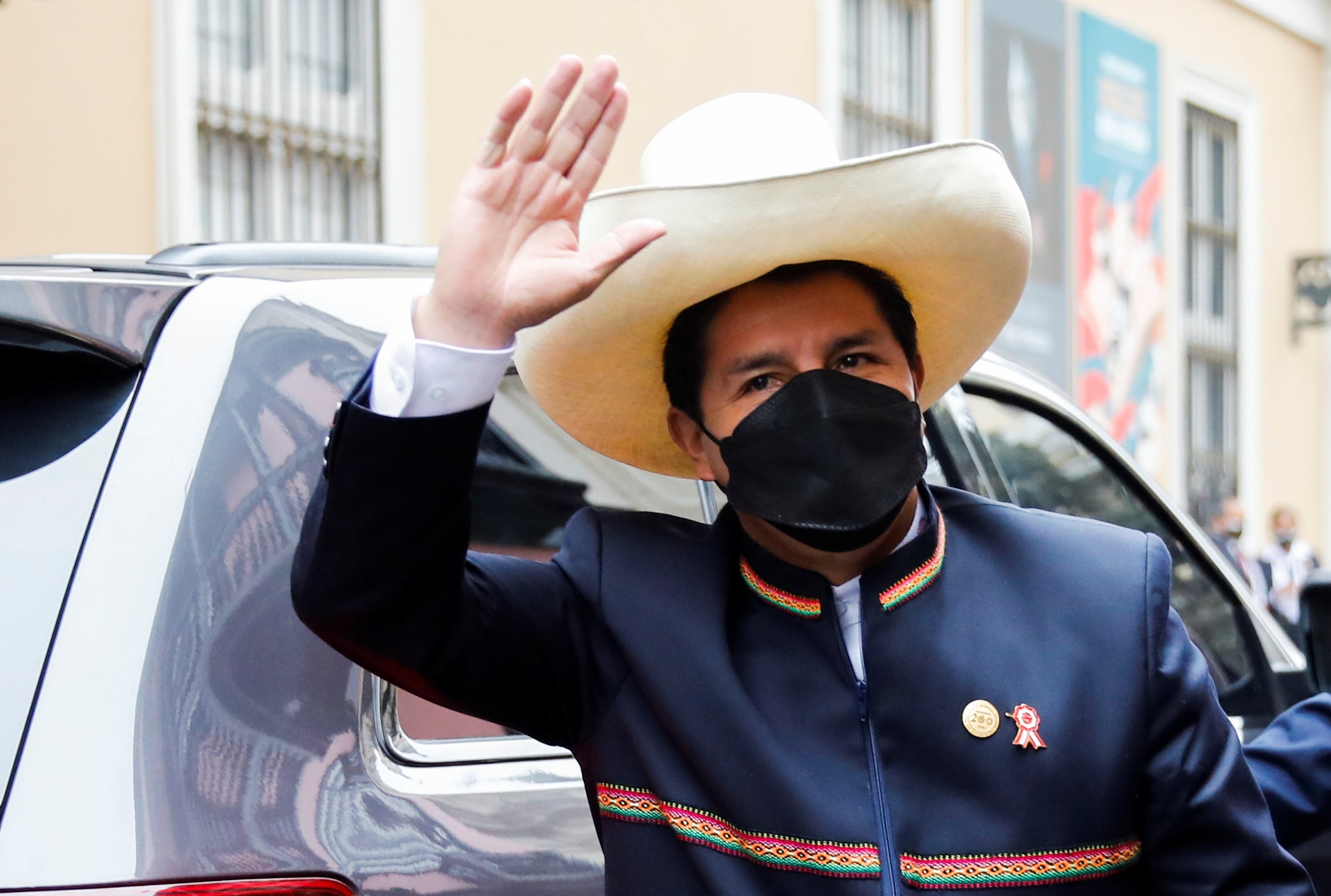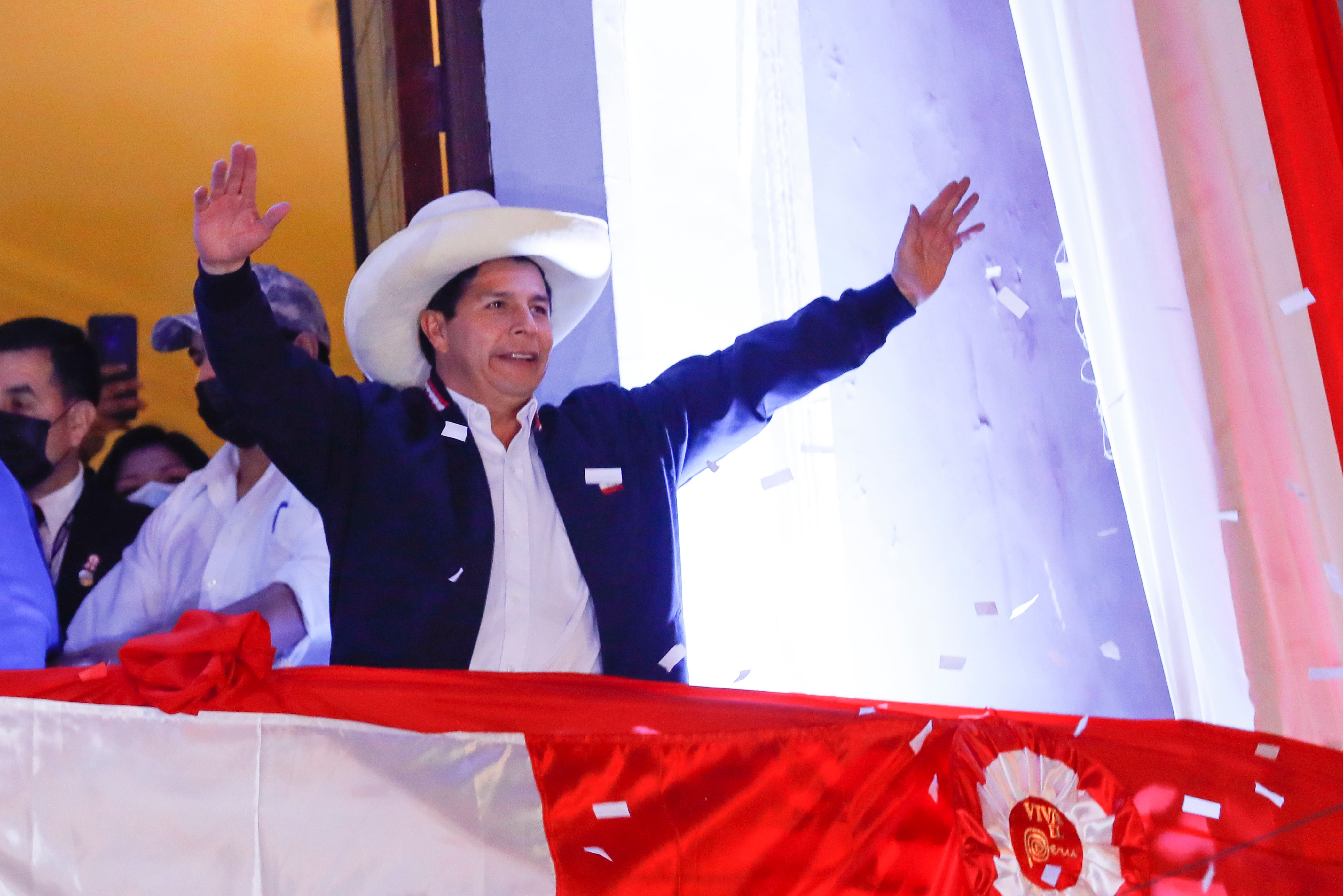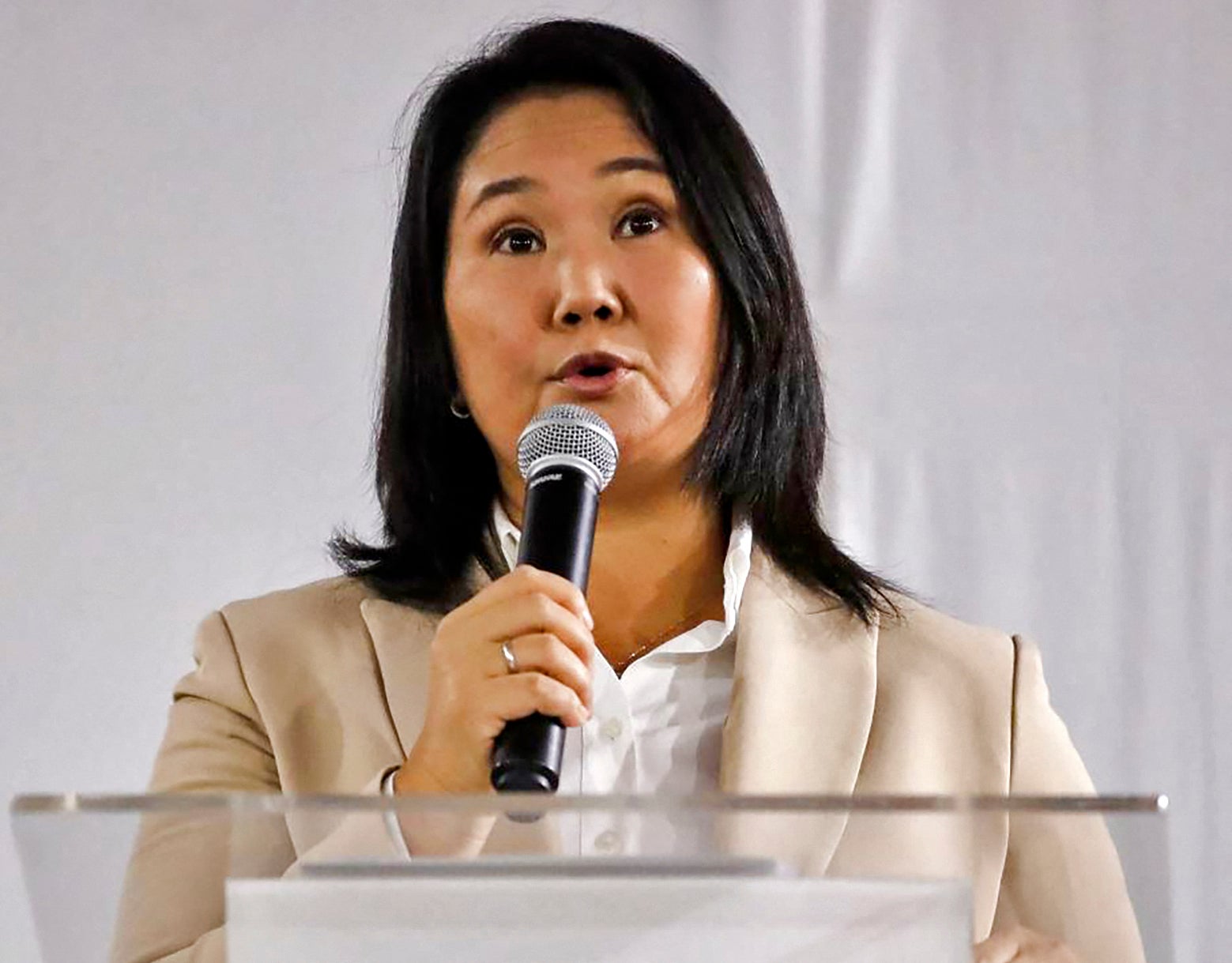Fujimori casts long shadow as Peru’s new president assumes office
Peru has had four presidents and two Congresses, as corruption scandals and power struggles have fueled turmoil and pushed institutions to their limits, writes Mitra Taj in Lima

Wednesday marks the 200th year of Peru’s independence, a date that many in the South American country once looked forward to as a national milestone. But instead of celebrating progress made, many Peruvians today are wondering what went wrong.
“Sometimes I think we’ve been cursed,” said Julia Hildalgo, a 34-year-old hairdresser in Lima, blaming an out-of-touch political class.
In recent years, Peru has had four presidents and two Congresses, as corruption scandals and power struggles have fueled turmoil and pushed institutions to their limits. Four former presidents have been in jail, and a fifth killed himself to avoid arrest.
Then the pandemic hit, giving Peru the highest official per capita Covid death toll and pushing ten percent of the population into poverty, followed by a presidential election that pitted two unpopular politicians against one another and ended with weeks of street protests.
I’m going to give my sweat and blood so everyone in this country can have the same opportunities, so the new generations start out with not just the opportunity to work but to hope
“Hopefully we’ve hit bottom,” said Hidalgo. “But it’s hard to say. No one knows what’s going to happen next.”
Pedro Castillo, the winner of the presidential election, is new source of uncertainty in Peru.
A socialist schoolteacher turned union leader whom few Peruvians knew a year ago, Castillo surged in the presidential race after campaigning heavily in far-flung towns ignored by other candidates, carrying a giant pencil to remind voters of his party’s logo and his promise to invest big in education.
His inauguration on Wednesday is a powerful symbol of rural representation in a central government that tends to be run by Lima elites. Castillo, 51, who wears a wide brimmed hat, was born to illiterate peasants and spent most of his professional life teaching at a school in Cajamarca, the northern Andean region where he lived before the election.

“In this government, no one will be left behind,” Castillo said in a ceremony last week. “I’m going to give my sweat and blood so everyone in this country can have the same opportunities, so the new generations start out with not just the opportunity to work but to hope.”
But Castillo has given few details about how he plans to run his government. And even on the eve of his inauguration, he still hadn’t confirmed any names for his Cabinet.
He hasn’t given media interviews in several weeks, and has made only vague and sometimes conflicting comments about his centerpiece proposals, including plans to pass a new constitution and renegotiate mining and natural gas contracts to ensure more public revenues.
He has sought to calm a backlash by elites in Lima with vows to ensure economic stability and fiscal responsibility, and is courting Peru’s award-winning central bank governor to stay on during his administration.
But Vladimir Cerrón, the leader of the Marxist-Leninist party that Castillo partnered with to launch his presidential bid, has repeatedly undermined Castillo’s efforts to moderate his image. Over the weekend, Cerrón led chants of “new constitution or death” in a recording of private political gathering leaked to local media, and took to Twitter to criticize Castillo’s economic advisor, accusing him of echoing “the Chicago Boys” by stressing the need to hire competent officials in government.
Castillo has said that Cerrón a Cuba-trained neurosurgeon and a former governor convicted of corruption, wouldn’t even work as a "doorman" in his administration.
But Cerrón appears to at least have his ear. Ahead of his inauguration, Castillo was rumored to be considering appointing his proposal for prime minister, a politician best known for refusing to recognize a child he fathered with a 14-year-old girl when he was 30.
“Cerrón, as a doorman, might be on the outside, but at least for now he has the keys to several doors,” Peruvian political analysts Fernando Tuesta said.
Fujimorismo has been involved in three impeachment attempts in five years. If they did that with governments that weren’t leftist, without a doubt they’ll do that with Castillo
Analysts say Castillo will more likely struggle to finish his five-year term than pass his more ambitious reforms. He beat one of Peru’s most unpopular politicians, Keiko Fujimori, in the election with less than 45,000 votes, and will govern alongside a Congress controlled by an opposition energized by her unproven claims of electoral fraud.
Fujimori, the eldest daughter of imprisoned authoritarian president Alberto Fujimori and the heir to his rightwing movement, is widely seen as having used her party to wage political battles after she lost the last presidential election. She has been charged with money laundering and faces up to 30 years in prison if found guilty.

“There’s no need to speculate,” said Peruvian political analyst Farid Kahhat. “Fujimorismo has been involved in three impeachment attempts in five years. If they did that with governments that weren’t leftist, without a doubt they’ll do that with Castillo.”
The days before Castillo’s inauguration did not bode well for a stable start to his government.
The chief of Peru’s armed forces asked to retire early, after Castillo named a radical former military officer to head his defense transition team, local media reported. His party’s proposals for congressional leadership positions was disqualified due to technical errors, handing the opposition control of the new Congress. And on Monday, he faced protests from members of his own party, who demanded he consider them for government posts.
Pedro Pancorbo, a 46-year-old shoe shiner in Lima, said he fears Castillo’s government, or the opposition to it, will jeopardize one of the few things that works well in Peru—its economy. Before the pandemic, Pancorbo said he had expanded to open two new shoe-shining operations in town, and had plans to start a hotel in his hometown in the Andes, a dream he still hopes to pursue once tourism starts again.
“All the progress we’ve made can be lost with what these men want to do,” Pancorbo said. “Instead of wasting time in trying to change the constitution they should focus on the pandemic and reactivating the economy.”
Adriana Urrutia, a political scientist with Peruvian civil society organization Transparencia, said Fujimori’s unproven fraud allegations and legal challenges had deprived the country of a normal presidential transition, distracting Castillo from focusing on building his government.
Castillo wasn’t officially proclaimed president-elect until last week, after authorities rejected the last of Fujimori’s appeals to annul up to 200,000 votes in the June 6 election, a move that would have disenfranchised voters in indigenous and rural areas where he won by a landslide.
“Democratic institutions have taken a blow. To recover trust in them we need to see leadership,” said Urrutia. “The problem is we need leadership now, and we’re not seeing signs of that yet.”






Join our commenting forum
Join thought-provoking conversations, follow other Independent readers and see their replies
Comments